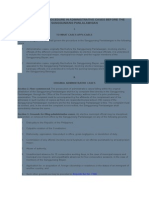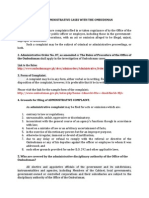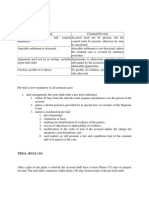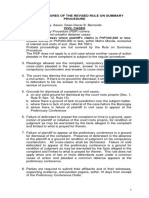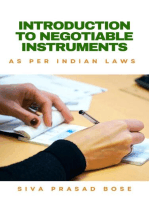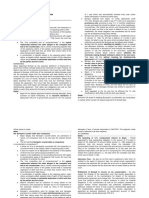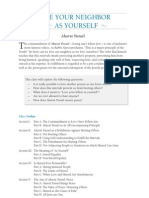Mapeh Dept Activity
Mapeh Dept Activity
Uploaded by
gloria tolentinoCopyright:
Available Formats
Mapeh Dept Activity
Mapeh Dept Activity
Uploaded by
gloria tolentinoOriginal Description:
Copyright
Available Formats
Share this document
Did you find this document useful?
Is this content inappropriate?
Copyright:
Available Formats
Mapeh Dept Activity
Mapeh Dept Activity
Uploaded by
gloria tolentinoCopyright:
Available Formats
MAPEH DEPARTMENT
Contents
PROCEDURE IN HANDLING ADMINISTRATIVE CASES................................................................2
Section 1. Grounds for administrative complaint..................................................................2
Section 2. Public officers covered; exceptions......................................................................2
Section 3. How initiated.......................................................................................................2
Section 4. Evaluation............................................................................................................2
Section 5. Administrative adjudication; How conducted.......................................................3
Section 6. Rendition of decision...........................................................................................4
Section 7. Finality and execution of decision........................................................................4
Submitted by: GLORIA C. TOLENTINO
Teacher I
MAPEH DEPARTMENT
PROCEDURE IN HANDLING ADMINISTRATIVE
CASES
Section 1. Grounds for administrative complaint.
An administrative complaint may be filed for acts or omissions which are:
a.) contrary to law or regulations;
b) unreasonable, unfair, oppressive or discriminatory;
c) inconsistent with the general course of an agency’s functions though in
accordance with law;
d) based on a mistake of law or an arbitrary ascertainment of facts;
e) in the exercise of discretionary powers but for an improper purpose;
f) otherwise irregular, immoral or devoid of justification;
g) due to any delay or refusal to comply with the referral or directive of the
Ombudsman or any of his deputies against the officer or employee to whom it was
addressed; and
h) such other grounds provided for under E.O. 292 and other applicable laws.
Section 2. Public officers covered; exceptions.
All elective and appointive officials of the government and its subdivisions,
instrumentalities and agencies, including Members of the Cabinet, local governments,
government-owned or controlled corporations and their subsidiaries are subject to the
disciplinary authority of the Office of the Ombudsman.
Section 3. How initiated.
An administrative case may be initiated by a written complaint under oath
accompanied by affidavits of witnesses and other evidence in support of the charge. Such
complaint shall be accompanied by a Certificate of Non-Forum Shopping duly subscribed
and sworn to by the complainant or his counsel.
Section 4. Evaluation.
Upon receipt of the complaint, the same shall be evaluated to determine whether
the same may be:
a) dismissed outright for any of the grounds stated under Section 20 of RA 6770,
provided, however, that the dismissal thereof is not mandatory and shall be
discretionary on the part of the Ombudsman or the Deputy Ombudsman concerned;
b) treated as a grievance/request for assistance which may be referred to the
Public Assistance Bureau, this Office, for appropriate action under Section 2, Rule IV
of this Rules;
c) referred to other disciplinary authorities under paragraph 2, Section 23, RA 6770
for the taking of appropriate administrative proceedings;
d) referred to the appropriate office/agency or official for the conduct of further
fact-finding investigation; or e) Docketed as an administrative case for the purpose
of administrative adjudication by the Office of the Ombudsman.
Submitted by: GLORIA C. TOLENTINO
Teacher I
MAPEH DEPARTMENT
Section 5. Administrative adjudication; How conducted.
a) If the complaint is docketed as an administrative case, the respondent shall be
furnished with a copy of the affidavits and other evidence submitted by the
complainant, and shall be ordered to file his counter-affidavits and other evidence in
support of his defense.
b) If the hearing officer finds no sufficient cause to warrant further proceedings on
the basis of the affidavits and other evidence submitted by the parties, the complaint
may be dismissed. Otherwise, he shall issue an Order (or Orders) for any of the
following purposes:
1. To direct the parties to file, within ten (10) days from receipt of the Order,
their respective verified position papers. The position papers shall contain
only those charges, defenses and other claims contained in the affidavits and
pleadings filed by the parties.
2. If the Hearing Officer decides not to consider the case submitted for
resolution after the filing of the position papers, affidavits and pleadings.He
may, at his discretion and for the purpose of determining whether there is a
need for a formal trial or hearing, ask clarificatory questions to further elicit
facts or information;
3. If the Hearing Officer finds no necessity for further proceedings on the
basis of the clarificatory hearings, affidavits, pleadings and position papers
filed by the parties, he shall issue an Order declaring the case submitted for
resolution.
4. If the Hearing Officer finds the need to conduct a formal investigation on
the basis of the clarificatory hearings, pleadings, affidavits and the position
papers filed by the parties, an Order shall be issued for the purpose.
c) The conduct of formal proceedings by the Office of the Ombudsman in
administrative cases shall be non-litigious in nature.
d) In the conduct of formal administrative investigation, the Hearing Officer shall set
the case for continuous trial. The parties shall be notified at least ten (10) days
before the date of the initial hearing
e) Only witnesses whose affidavits have been submitted by the parties and served on
the adverse party prior to the issuance of the Order directing the conduct of a formal
investigation may be allowed to testify at the hearing
f) The parties shall be allowed the assistance of counsel and the right to the
production of evidence thru the compulsory process of subpoena and subpoena
duces tecum;
g) The following pleading shall be deemed prohibited in the cases covered by these
Rules:
1. Motion to dismiss,
Submitted by: GLORIA C. TOLENTINO
Teacher I
MAPEH DEPARTMENT
2. Motion for bill of particulars; and
3. Dilatory motions
Said pleadings shall be stricken off the records of the case
Section 6. Rendition of decision.
Not later than thirty (30) days after the case is declared submitted for resolution, the
Hearing Officer shall submit a proposed decision containing his findings and
recommendation for the approval of the Ombudsman.
Section 7. Finality and execution of decision .
Where the respondent is absolved of the charge, and in case of conviction where the
penalty imposed is public censure or reprimand, suspension of not more than one month, or
a fine equivalent to one month salary, the decision shall be final, executory and
unappealable.
Submitted by: GLORIA C. TOLENTINO
Teacher I
You might also like
- Phil. Constitution, General Information, Current EventsDocument6 pagesPhil. Constitution, General Information, Current EventsShieliie Junio Farral78% (82)
- The Art of Recusing a Judge - With Ultimate Loopholes and a Sample Motion to RecuseFrom EverandThe Art of Recusing a Judge - With Ultimate Loopholes and a Sample Motion to RecuseRating: 4.5 out of 5 stars4.5/5 (8)
- The Rules of Procedure in Administrative Cases Before The Sangguniang PanlalawiganDocument7 pagesThe Rules of Procedure in Administrative Cases Before The Sangguniang PanlalawiganStellaHallazgo100% (4)
- Day 2 BFP Disciplinary MachineryDocument112 pagesDay 2 BFP Disciplinary MachinerySandra Kaye Nonan CalicaNo ratings yet
- Appellate Practice and Brief MakingDocument5 pagesAppellate Practice and Brief MakingGracey Pelagio100% (1)
- Post Judgment RemediesDocument9 pagesPost Judgment RemediesRaffyLaguesma100% (1)
- Rules of Court (Philippines) Rule 65Document5 pagesRules of Court (Philippines) Rule 65MaeJo100% (4)
- Notes: Civil Procedure 2 CIP301-KDocument53 pagesNotes: Civil Procedure 2 CIP301-KnigelNo ratings yet
- Twelfth Night Critical Analysis and Summary.Document5 pagesTwelfth Night Critical Analysis and Summary.Aayush Yadav100% (1)
- Solved Your Company Distills Kentucky Bourbon A Canadian Competitor IsDocument1 pageSolved Your Company Distills Kentucky Bourbon A Canadian Competitor IsAnbu jaromiaNo ratings yet
- AL - P04306 Satyendra Bahadur SinghDocument6 pagesAL - P04306 Satyendra Bahadur SingharunNo ratings yet
- Filing Administrative Cases With The OmbudsmanDocument6 pagesFiling Administrative Cases With The Ombudsmanizrah romatan100% (4)
- Rules of Procedure - OmbudsmanDocument9 pagesRules of Procedure - OmbudsmanLeila De SilvaNo ratings yet
- RRACCS ProcedureDocument6 pagesRRACCS ProcedureMark VernonNo ratings yet
- Admin Reviewer II FINALSDocument43 pagesAdmin Reviewer II FINALSDon Vicente MateNo ratings yet
- Judicial Administration Page 1 of 5Document5 pagesJudicial Administration Page 1 of 5YuriNo ratings yet
- Admin Law Prefinal NotesDocument14 pagesAdmin Law Prefinal NotesSanson OrozcoNo ratings yet
- The Administrative Disciplinary Process in The Philippine Civil ServiceDocument4 pagesThe Administrative Disciplinary Process in The Philippine Civil ServiceYmer VT0% (1)
- L Review: Bagares, Ariane P. 2-Teehankee Admin Law Midterm ExamDocument7 pagesL Review: Bagares, Ariane P. 2-Teehankee Admin Law Midterm ExamArriane P. BagaresNo ratings yet
- Section 3. Referral To Mediation. - at The Start of The Pre-Trial Conference, The Court ShallDocument8 pagesSection 3. Referral To Mediation. - at The Start of The Pre-Trial Conference, The Court ShallAnthea Louise RosinoNo ratings yet
- Revised Rules On Administrative Cases in The Civil ServiceDocument18 pagesRevised Rules On Administrative Cases in The Civil ServiceDara Mitzi Pinili LindicoNo ratings yet
- 03-2169 LegFormatDocument2 pages03-2169 LegFormatMary TuckerNo ratings yet
- MORB 15 of 16Document105 pagesMORB 15 of 16glaisa23No ratings yet
- 2000 NPS Rules On AppealDocument4 pages2000 NPS Rules On AppealMarvin CalmaNo ratings yet
- Eo 292 Chapter 7Document5 pagesEo 292 Chapter 7potrehakhemahmadkiNo ratings yet
- Pre-Trial (Rule 118)Document7 pagesPre-Trial (Rule 118)Meng GoblasNo ratings yet
- Judgements (2nd Showcause Notice)Document5 pagesJudgements (2nd Showcause Notice)kodara8541No ratings yet
- Lecture 13 Sec 115 RevisionDocument3 pagesLecture 13 Sec 115 RevisionNomi KingNo ratings yet
- Executive Order No. 292 (BOOK V - Title I - Subtitle A - Chapter 7-Discipline) - Official Gazette of The Republic of The PhilippinesDocument7 pagesExecutive Order No. 292 (BOOK V - Title I - Subtitle A - Chapter 7-Discipline) - Official Gazette of The Republic of The PhilippinesJasonV.PanayNo ratings yet
- The CODI and Administrative Disciplinary Rules On Sexual 1Document31 pagesThe CODI and Administrative Disciplinary Rules On Sexual 1Jade GranadaNo ratings yet
- IPC Amended Rules 11 July 2016Document7 pagesIPC Amended Rules 11 July 2016Ysabel PadillaNo ratings yet
- NPS Rule On Appeal PDFDocument3 pagesNPS Rule On Appeal PDFAllisonNo ratings yet
- PD 807 Prev SuspDocument5 pagesPD 807 Prev SuspLawrence NgNo ratings yet
- DOJ Circular No. 70Document3 pagesDOJ Circular No. 70Sharmen Dizon Gallenero100% (1)
- CPC NotesDocument26 pagesCPC NotesShabnam67% (3)
- Civil Service RulesDocument21 pagesCivil Service Rulesgjquibo26No ratings yet
- Ble Group 5Document74 pagesBle Group 5Brynn SapaNo ratings yet
- Rule 30Document30 pagesRule 30akonik22100% (1)
- NCPerilla-PowerPoint-PresentationDocument56 pagesNCPerilla-PowerPoint-PresentationAmaya SultanNo ratings yet
- RULE 64-65 - COMELEC&COA and Certiorari, Prohibition and MandamusDocument5 pagesRULE 64-65 - COMELEC&COA and Certiorari, Prohibition and MandamusRoji Belizar HernandezNo ratings yet
- REMDocument34 pagesREMHanna Hazel AgapayNo ratings yet
- CODAL-Remedial Law Special LawsDocument236 pagesCODAL-Remedial Law Special LawsMarvin DiegoNo ratings yet
- May A Ground Previously Invoked in A Denied Motion To Dismiss Be Invoked Anew?Document4 pagesMay A Ground Previously Invoked in A Denied Motion To Dismiss Be Invoked Anew?Lara Theresa SudarioNo ratings yet
- Salient Features of The Revised Rule On Summary ProcedureDocument3 pagesSalient Features of The Revised Rule On Summary ProcedureERVIN SAGUNNo ratings yet
- Nature:: of The Judgment or Final OrderDocument10 pagesNature:: of The Judgment or Final OrderJIJAMNNo ratings yet
- Nature:: of The Judgment or Final OrderDocument10 pagesNature:: of The Judgment or Final OrderJIJAMNNo ratings yet
- DENR Administrative OrderDocument5 pagesDENR Administrative OrderEsper LM Quiapos-SolanoNo ratings yet
- IMC No 2021-01 Revised Rules of Procedure Governing Administrative Cases Before The Insurance Commission w-Publication-DateREPDDocument13 pagesIMC No 2021-01 Revised Rules of Procedure Governing Administrative Cases Before The Insurance Commission w-Publication-DateREPDaligagNo ratings yet
- Rules of Procedure On AdrDocument33 pagesRules of Procedure On AdrbubblingbrookNo ratings yet
- 2.Article78.R.HerbstDocument20 pages2.Article78.R.HerbstVORTEX BORENo ratings yet
- Rule 41-50 ReviewerDocument5 pagesRule 41-50 ReviewerKimberly Dedal BayawanNo ratings yet
- California Supreme Court Petition: S173448 – Denied Without OpinionFrom EverandCalifornia Supreme Court Petition: S173448 – Denied Without OpinionRating: 4 out of 5 stars4/5 (1)
- Federal Rules of Civil Procedure: Hyperlinked, #2From EverandFederal Rules of Civil Procedure: Hyperlinked, #2Rating: 5 out of 5 stars5/5 (1)
- Introduction to Negotiable Instruments: As per Indian LawsFrom EverandIntroduction to Negotiable Instruments: As per Indian LawsRating: 5 out of 5 stars5/5 (1)
- Bar Review Companion: Taxation: Anvil Law Books Series, #4From EverandBar Review Companion: Taxation: Anvil Law Books Series, #4No ratings yet
- New York Notary Public Study Guide with 5 Practice Exams: 200 Practice Questions and 50+ Bonus Questions IncludedFrom EverandNew York Notary Public Study Guide with 5 Practice Exams: 200 Practice Questions and 50+ Bonus Questions IncludedRating: 5 out of 5 stars5/5 (1)
- Narrative GSP 2014Document4 pagesNarrative GSP 2014gloria tolentinoNo ratings yet
- DLLMusic 2ND QDocument57 pagesDLLMusic 2ND Qgloria tolentinoNo ratings yet
- Summative Music & Arts 3rdDocument2 pagesSummative Music & Arts 3rdgloria tolentino100% (1)
- MAPEH-10 PHysical-Education MODULE InteventionDocument26 pagesMAPEH-10 PHysical-Education MODULE Inteventiongloria tolentino100% (1)
- ED 812 - Module IV - Learning Activity - TOLENTINO GLORIA C - PhDDEVEDDocument7 pagesED 812 - Module IV - Learning Activity - TOLENTINO GLORIA C - PhDDEVEDgloria tolentinoNo ratings yet
- Individual ACR 10 18 t0 19 24Document2 pagesIndividual ACR 10 18 t0 19 24gloria tolentinoNo ratings yet
- Ar - Domingo - Norayda T. - MapehDocument30 pagesAr - Domingo - Norayda T. - Mapehgloria tolentinoNo ratings yet
- Final 4th Quarter MAPEH 10Document4 pagesFinal 4th Quarter MAPEH 10gloria tolentinoNo ratings yet
- Module-Music 10-Q2 - W6Document4 pagesModule-Music 10-Q2 - W6gloria tolentinoNo ratings yet
- Regional Diagnostic Test For MAPEH 9 60 Items FINALDocument12 pagesRegional Diagnostic Test For MAPEH 9 60 Items FINALgloria tolentinoNo ratings yet
- Module-PE 10-Q2-W5Document4 pagesModule-PE 10-Q2-W5gloria tolentinoNo ratings yet
- Q2 - MUSIC 10 - ModuleDocument25 pagesQ2 - MUSIC 10 - Modulegloria tolentinoNo ratings yet
- Summative Health 3rdDocument2 pagesSummative Health 3rdgloria tolentino100% (1)
- TOLENTINO - GC - IDLAR - April1-30, 2022Document5 pagesTOLENTINO - GC - IDLAR - April1-30, 2022gloria tolentinoNo ratings yet
- Arts10 Q2 W3Document7 pagesArts10 Q2 W3gloria tolentino100% (1)
- Las Ro3 Final H9Q3W4 8Document17 pagesLas Ro3 Final H9Q3W4 8gloria tolentinoNo ratings yet
- A Facilitator's Training GuideDocument33 pagesA Facilitator's Training Guidegloria tolentinoNo ratings yet
- Module-Health 10-Q2-W4Document4 pagesModule-Health 10-Q2-W4gloria tolentinoNo ratings yet
- Activity Sheet For Myths and Misconception of Substance Use and AbuseDocument2 pagesActivity Sheet For Myths and Misconception of Substance Use and Abusegloria tolentinoNo ratings yet
- FLOODDocument4 pagesFLOODgloria tolentinoNo ratings yet
- 7 E Model Lesson PlanDocument7 pages7 E Model Lesson Plangloria tolentinoNo ratings yet
- Landslide Hazard InformationDocument8 pagesLandslide Hazard Informationgloria tolentino100% (1)
- DLL - DRRM - Pe 9Document1 pageDLL - DRRM - Pe 9gloria tolentinoNo ratings yet
- Activity For 7 EDocument3 pagesActivity For 7 Egloria tolentinoNo ratings yet
- REFERENCE - Mental Health StigmasDocument9 pagesREFERENCE - Mental Health Stigmasgloria tolentinoNo ratings yet
- San Jose City National High School San Jose City Assessment in Mapeh 9 Physical Education 9Document1 pageSan Jose City National High School San Jose City Assessment in Mapeh 9 Physical Education 9gloria tolentinoNo ratings yet
- Part I. Direction: Multiple Choice. Read Each of The Following Statement and Choose The Best Answer. Write The Letter On The Space ProvidedDocument2 pagesPart I. Direction: Multiple Choice. Read Each of The Following Statement and Choose The Best Answer. Write The Letter On The Space Providedgloria tolentinoNo ratings yet
- San Jose City National High School San Jose City Assessment in Mapeh 9 PE-Quarter 2 Week 5Document2 pagesSan Jose City National High School San Jose City Assessment in Mapeh 9 PE-Quarter 2 Week 5gloria tolentinoNo ratings yet
- Music Part I. Multiple Choice. DIRECTIONS: Choose The Letter of The Correct AnswerDocument2 pagesMusic Part I. Multiple Choice. DIRECTIONS: Choose The Letter of The Correct Answergloria tolentinoNo ratings yet
- Name: - Score: - Grade& SectionDocument3 pagesName: - Score: - Grade& Sectiongloria tolentinoNo ratings yet
- History 2 edited(0)Document20 pagesHistory 2 edited(0)Guutaa DirbabaaNo ratings yet
- Gensoc-Module-Finals - Kirtug, Kain Ford B.Document10 pagesGensoc-Module-Finals - Kirtug, Kain Ford B.Kain Ford KirtugNo ratings yet
- Defence Research and Development Organisation - WikipediaDocument24 pagesDefence Research and Development Organisation - Wikipediabhupinder singhNo ratings yet
- CTA 8239 (AR Realty) - Excess Input Tax Carry-OverDocument53 pagesCTA 8239 (AR Realty) - Excess Input Tax Carry-OverJerwin DaveNo ratings yet
- Jurisdiction of The International Court of JusticeDocument262 pagesJurisdiction of The International Court of JusticeYour HelperNo ratings yet
- Unconscionability and Illegality Defense: Case Analysis: Sosa v. Paulos M.D. Supreme Court of UtahDocument15 pagesUnconscionability and Illegality Defense: Case Analysis: Sosa v. Paulos M.D. Supreme Court of Utahledzppln99No ratings yet
- Hilex Poly Co., Inc v. Maierhoffer Et Al - Document No. 15Document3 pagesHilex Poly Co., Inc v. Maierhoffer Et Al - Document No. 15Justia.comNo ratings yet
- EDSA People Power Revolution ReflectionDocument3 pagesEDSA People Power Revolution ReflectionCharmie Lhyn LapeNo ratings yet
- Vijay Tendulkar - IntroductionDocument7 pagesVijay Tendulkar - IntroductionKaushik RayNo ratings yet
- 1996 AFM Vol 2 Gen en Mob PT 1 Op Art Tac Doc PDFDocument714 pages1996 AFM Vol 2 Gen en Mob PT 1 Op Art Tac Doc PDFKebede Michael100% (1)
- Ordination of Women in The Catholic Church: 21St Century ContextDocument2 pagesOrdination of Women in The Catholic Church: 21St Century ContextGlenNo ratings yet
- Van Dorn V RomilloDocument3 pagesVan Dorn V RomilloTrexPutiNo ratings yet
- Answers Extra-Voc-GrammarDocument4 pagesAnswers Extra-Voc-GrammarJohn Fredy Muñoz OsorioNo ratings yet
- 15 Bayer Phil. v. CADocument2 pages15 Bayer Phil. v. CAfrancis gomezNo ratings yet
- Resolution No. 01-2019 (Reenactment of 2018 Budget)Document2 pagesResolution No. 01-2019 (Reenactment of 2018 Budget)brgypanianganNo ratings yet
- Nafis ComplaintDocument21 pagesNafis ComplaintColin FreezeNo ratings yet
- The KKK and Kar WPS Office (1) 064053Document17 pagesThe KKK and Kar WPS Office (1) 064053empasisjanbeatNo ratings yet
- Ahavat YisraelDocument10 pagesAhavat YisraelweyerNo ratings yet
- Indonesia - 1965 The Coup That Backfire PDFDocument356 pagesIndonesia - 1965 The Coup That Backfire PDFAlvi PutNo ratings yet
- Drama CritiqueDocument2 pagesDrama CritiqueSienna BoodramNo ratings yet
- Girl Interrupted: Aleda Mitchell Lisa RoweDocument7 pagesGirl Interrupted: Aleda Mitchell Lisa Rowejoseph stickelNo ratings yet
- Tooling AgreementDocument4 pagesTooling Agreementvinay kumarNo ratings yet
- Bismarck After 50 Years by Erich EyckDocument12 pagesBismarck After 50 Years by Erich EyckMOHAMMAD HAFIZAL AIMAN BIN ABDUL HALIMNo ratings yet
- The Anatomy of A Filipino by 2Document1 pageThe Anatomy of A Filipino by 2Liezl Sabado60% (10)
- Resignation LetterDocument1 pageResignation LetterFroylahn T. JovellanosNo ratings yet
- Annexure-I National Institute of Fashion TechnologyDocument9 pagesAnnexure-I National Institute of Fashion TechnologySuman KumarNo ratings yet


